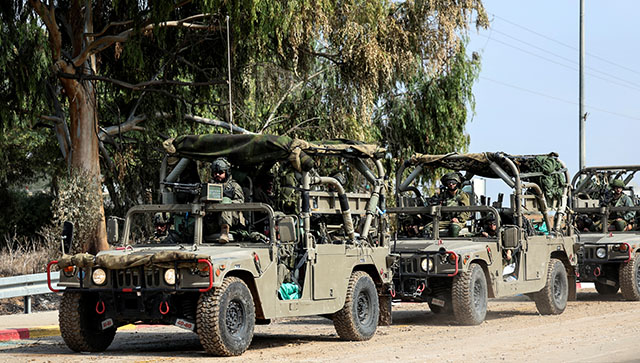The ongoing conflict in the Middle East has once again brought the spotlight on the situation in Sderot and the surrounding areas. These regions have experienced devastation at the hands of Hamas terrorists, who have been driven out in phase one of Israel’s operation. However, as discussions of a potential phase two, a ground invasion gain momentum, it’s essential to understand the implications and complexities involved in such a move.
The historical context Israel has a history of conducting ground invasions in Gaza. Notably, the last Israeli ground operation was in 2014 when Hamas launched a volley of rockets into Israel prompting a ground invasion that lasted around 19 days. More than 2,000 Palestinians lost their lives and Israel lost 73 citizens during that operation. A similar ground invasion named Operation Cast Lead took place in 2008 lasting about two weeks and resulting in significant casualties among Palestinians. Military viability The high death tolls from past invasions indicate that these operations were militarily viable albeit with casualties on both sides. Israel inflicted substantial damage on Hamas during these incursions. The question now is whether history will repeat itself, and if so, how will it play out? Preparation for a ground invasion Before any potential ground invasion, Israel would have to ensure two critical elements. Firstly, outside support is essential, with the United States deploying an aircraft carrier and fighter jets to the region acting as insurance against potential threats from Iran and Hezbollah. Secondly, Israel would aim to soften Hamas defences using land-based artillery and gunboats, as they have done in the past. Challenges faced during an invasion Once Israeli troops enter Gaza, the situation becomes increasingly challenging. Gaza is a densely populated urban area making urban warfare almost inevitable. This environment provides ample opportunities for Hamas to take cover and lay traps. An invasion could lead to a prolonged and costly struggle, not to mention a significant number of casualties. Evolving threats Hamas now possesses more sophisticated weapons including anti-tank missiles and armed drones increasing the potential cost of an invasion. However, Israel boasts a world-class military with experience in urban warfare in Gaza and the West Bank as well as familiarity with Hamas tactics. This expertise suggests that the outcome of an invasion is not in doubt. Why hasn’t Netanyahu launched a ground invasion? Despite the potential for success, there are several reasons why Prime Minister Benjamin Netanyahu has been hesitant to order a ground invasion. First, Netanyahu has historically preferred air strikes and drone attacks over ground incursions. Second, he must consider what comes after the invasion. Occupation of Gaza would be a daunting task and the risk of a power vacuum or even more radical elements emerging in Hamas’s place poses significant challenges. Balancing act Netanyahu faces a tough call, balancing various factors and risks, many of which are conflicting. Public sentiment in Israel demands revenge, which airstrikes alone might not satisfy. However, Israeli soldier casualties in Gaza could shift public sentiment negatively. This dilemma was evident in Netanyahu’s reported conversation with US President Joe Biden where he expressed the need to avoid appearing weak. Unity government as a potential solution To mitigate some of these risks, Netanyahu has called for a unity wartime government including both the ruling party and the opposition. Such a government is intended to signal national unity and strengthen Israel’s position. Talks are ongoing behind the scenes, and in the coming days, we will have answers regarding both the government’s formation and the potential ground invasion. A fluid state The prospect of an Israeli ground invasion in Gaza is a complex and multifaceted issue with historical precedents, military strategies, evolving threats and political considerations. While a ground invasion is militarily viable, its success depends on a careful balance of various factors. The situation remains fluid and the decisions made in the coming days will significantly impact the future of this conflict. Views expressed in the above piece are personal and solely that of the author. They do not necessarily reflect Firstpost’s views. Read all the Latest News , Trending News , Cricket News , Bollywood News , India News and Entertainment News here. Follow us on Facebook, Twitter and Instagram.


)

)
)
)
)
)
)
)
)



